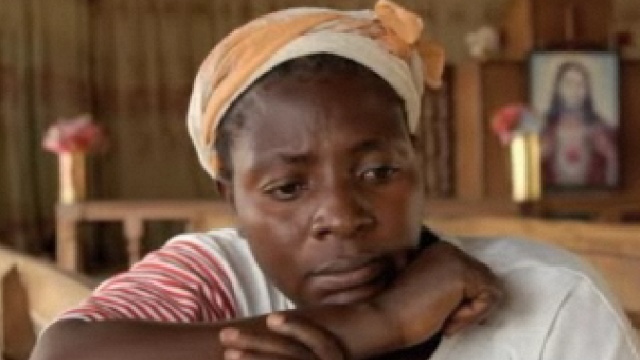Minister condemns inhumane treatment in Nigerian prisons, demands urgent reforms

…as overcrowding, corruption, abuse lead scrutiny
By Ukpono Ukpong
The Minister of Interior, Dr. Olubunmi Tunji-Ojo, has emphasized the urgent need for reforms in Nigeria’s correctional service, warning that the treatment of the weakest members of society reflects the government’s effectiveness.
Speaking at the public hearing of the Independent Investigation Panel on alleged corruption, abuse of power, torture, cruel, inhumane, and degrading treatment within the Nigerian Correctional Service (NCoS), the minister highlighted critical areas requiring intervention.
According to the minister, the areas include reducing the number of correctional facilities, addressing overcrowding, and introducing alternative measures to incarceration.
He stressed that inmates should be treated with dignity and provided opportunities for rehabilitation and reintegration into society.
Dr. Tunji-Ojo, who revealed that some facilities were operating at just 30-40% capacity, while others were grossly overcrowded, also proposed a redistribution of inmates convicted of federal offenses to less congested centres, as federal jurisdiction exists in every state.
He described this measure as a short-term solution to reduce overcrowding while broader reforms are implemented.
“Realistically speaking, do we need 256 correctional centres that we have? The answer is no because the more correctional centers, the more pressure and stress in terms of supervision and control. And when there is problem of supervision and control, abuse becomes inevitable.
“So, in so many climes today, you have 3,000 capacity correctional centres. How many do we actually need? We need to look at that.
“Number three is, even with what we have today, there are some correctional centers that are densely populated or overcrowded, let me say that.
“And there are some that are not too populated. If there are criminals, if they are federal offences, there is federal jurisdiction. If I am not wrong, federal jurisdiction is everywhere, federal high court.
“So, can we critically look and analyse every correctional centre and look at those (inmates) who have committed federal offences and move them to less populated areas?
Because it will shock you that there are correctional centres with about 30%, 40% occupation rate and there are some with about 200%. So how do we look at it? We think those are short-term gains that we can do like now and be able to reduce the space,” he stated.
Emphasizing that “this is 2025, not 1825,” the minister condemned the continued inhumane treatment of inmates and called for a psychological evaluation of correctional officers to ensure they are mentally fit to manage incarcerated individuals.
Noting that this is 2025 and not 1825, the minister said the time has come to also conduct psychological evaluation of personnel of the Nigerian Correctional Service (NCoS).
He said no government will ever be judged by how it treats the strongest, but by how the weakest are handled.
“That is the key. It is the way you handle the weakest in the society that determines the efficiency of the government.
“For us, as a government, under the leadership of Mr President, we have decided not to toe the path of business as usual, but we have decided to make it business unusual.
“The era when a man goes into a custodial centre and all that happens is incarceration and condemnation should be gone. This is 2025. This is not 1825.
“We must treat people with respect regardless of where they are. That a man is in a correctional centre doesn’t make him less human.
“A lot of these reforms, beyond infrastructural reforms, beyond strategic reforms, have to also happen within the context of our correctional offices. The core responsibility of a correctional officer is to be an agent of rehabilitation, restoration, reformation and correction and never to be an agent of condemnation.
“That a man loses his freedom by virtue of being an inmate does not mean he should lose his dignity as a human being. It is your responsibility to protect the dignity of even the least in our society.
“When condemnation takes the place of correction, then the system must have failed. There is a huge responsibility for this committee. Responsibility number one is for you to look inwards and cure yourself of the disease or else it becomes contagious. Our correctional officers, their psyche, it is important. I think a lot of them really need psychological evaluation, without being disrespectful.
Because a man who will handle a man that is already feeling deprived should be psychologically sound, and I mean that without an apology. There are people, even if the wives do not give them breakfast, they will go and use it to attack others. It’s the truth.
If they sleep and if they go to bed unable to find sleep, the next person is the helpless person that the system and the institution is supposed to protect becomes the target. When the vulnerable, when the subject of protection becomes a target, then there is a problem, and that is where we are,” he said.
While charging the investigative panel with not just identifying issues but providing actionable solutions and timelines for implementation, he also assured them of his commitment to executing necessary reforms to restore dignity to the correctional service.
Earlier in her address, the Permanent Secretary of the Ministry of Interior, Dr. Magdalene Ajani, welcomed stakeholders to the second public hearing of the investigative panel.
She commended the minister for his dedication to justice, transparency, and reform, while also acknowledging the support of key partners such as the National Human Rights Commission, UNICEF, International IDEA, civil society groups, and prison fellowship organizations.
The first public hearing had already revealed grave concerns about the treatment of inmates, the management of correctional facilities, and multiple breaches of legal and ethical standards.
As the second hearing commenced, the panel reaffirmed its commitment to ensuring that the voices of victims, affected families, and concerned stakeholders were heard, and that justice was served.
The findings and recommendations from this inquiry, the minister assured, would form the foundation for meaningful reforms in Nigeria’s correctional system. “That a man loses his freedom by virtue of being an inmate does not mean he should lose his dignity as a human being,” he declared. “It is your responsibility to protect the dignity of even the least in our society.”








